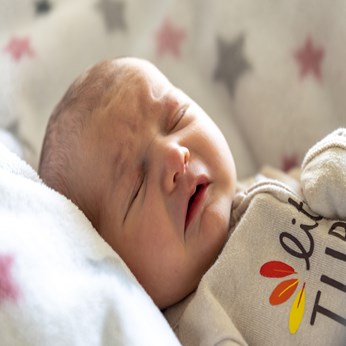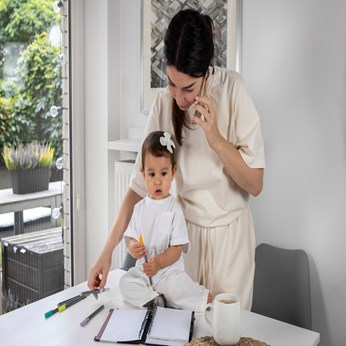Tips To Care For A Sick Pet Bird
Being the owner of a pet bird could make you concerned when it is sick or injured; you could overcome stress of looking after your pet bird by following the following tips and the instructions and supportive care of your vet.
Here are some tips to care for your sick pet bird:
• First of all do not blame yourself for the sickness of your pet bird; birds are experts at hiding signs of illness until it is too late. Just do your best and work with the vet.
• Your sick or injured pet bird should be housed separately, away from other pets and children in a hospital or smaller cage made with a glass aquarium covered with a screen, a pet carrier, or even a shoe box with holes punched in it. Ensuring that the environment is quiet would allow some rest to your sick pet bird.
• Ensure that the pet bird is kept warm by using hot water bottles, heating pads and heat lamps; ensure that the heating lamp and pads are set up in such a way that the bird is not able to peck on the electrical cord. Ensuring a temperature of 80 to 90 degrees F would save the pet bird’s energy to keep its body warm that would facilitate its getting well soon.

• One of the biggest dangers to sick pet birds is dehydration; ensure you provide your bird enough of fluids by dripping fluids down the sick bird’s throat with a small syringe every few hours. Some of the recommended fluids are Pedialyte or 100% fruit juice. Be gentle if you have to force-feed fluids to the sick-bird; wrap the bird in a towel and then use a syringe to put a few drops of fluid in its mouth each time. Ensure you store a few extra bottles of unopened Pedialyte in the pantry to be used for emergencies.
• Make sure you keep food in the hospital cage; it is best to provide berry and seed eating birds with a dish of bird food to which some bits of cut-up cherries or some raisins are added. Carnivorous birds love bugs; they could be given a little dish of birdseed to which some suet is mixed. Enticing a sick bird to eat can be best done by adding some of its favorite foods like good quality and fresh seed and millet. You could consult your vet regarding adding some extra supplements to your bird’s food.
• You may be required to give your sick pet bird medicines that are prescribed by the vet with a clean syringe; get the bird used to syringe by offering them special treats like warmed baby milk. Ensure that the medicines are kept refrigerated.
• If the sick bird is not eating, you may have to hand-feed it; you could mix warm water to commercial parrot hand-feeding formula in powder form and feed it with a syringe. Ensure you store the unopened hand-feeding formula in the freezer.
• Lastly ensure that you keep the contact details of the vet and the avian first aid kit handy at all times to tackle emergencies.
Image Courtesy: Bing
Take the next step toward your goals
Share your requirement and find the best care providers in your area
-
Looking for a caretaker’s job? Build your profile and get in touch with families in your vicinity.
-
Discover nannies, babysitters, cooks, housekeepers, pet sitters, and elder care under one roof.
-
Get all the support you need to run a successful care center.
-
Search for appropriate centers near you depending on your needs.
Care Corner Insights: Blog Library

Overnight Babysitters in Bellevue, WA for Business-Travelling NRI Parents: Safety & Policies
For many NRI parents living in Bellevue, WA, frequent business trips are a reality. While traveling, one of the biggest concerns is ensuring your children are safe, cared for, and emotionally supported during overnight stays. Overnight babysitters ca

Indian Home-Style Cooks in Queens, NY: Tiffin-Style Weekly Meal Prep from Your Kitchen
Queens, NY, is home to one of the most diverse food cultures in the country, and Indian cuisine holds a special place among families looking for authentic, comforting meals. While restaurant takeout is convenient, nothing compares to the taste and nu

Baby Sleep Problems: What is Sleep Regression and How to Handle It
If you’re a parent, you know that baby sleep is one of the greatest mysteries of life. One day your little one is snoozing like an angel, and the next day they’re suddenly waking up every hour, fussing, or refusing to nap. Before you panic, there’s a

What is Validation Therapy? A New Approach to Dementia Care
Caring for loved ones with dementia is one of the most emotionally challenging journeys a family can face. Traditional methods often focus on correcting memory lapses or redirecting confused thoughts—but that can sometimes lead to frustration, stress

What is a Part-Time Nanny and Do You Need One
Parenting is a beautiful journey, but let’s be honest—it can also be exhausting! Between work deadlines, household chores, and family responsibilities, sometimes there just aren’t enough hours in a day. That’s where part-time nannies step in, offerin

Part-Time Housekeeper Hiring in Alpharetta, GA: Weekly Schedules, Pricing, and Must-Do Tasks
Keeping a home spotless while balancing work, family, and personal commitments can be overwhelming. For families and professionals in Alpharetta, GA, hiring a part-time housekeeper is one of the most practical solutions. Whether you need help once a

Affordable Daycares in Irving, TX with Indian Menu Options: Parent Reviews & Enrollment Tips
Finding the right daycare for your little one is never an easy decision—especially if you’re looking for one that fits your budget and offers familiar food options like an Indian-inspired menu. For parents in Irving, TX, the good news is that several

Can Babies Sleep on Their Side? Tips for Safe Baby Sleep
When it comes to newborns, every parent worries about the smallest details—how they sleep, what they wear, even which way they turn their tiny heads. One common question that pops up is: “Can babies sleep on their side?” The short answer? Not recom

8 Benefits of Hiring a House Cleaner for Your Home
Let’s be honest — keeping a home sparkling clean while juggling work, family, and daily life can feel like a full-time job in itself. That’s where professional house cleaners step in, turning the chaos into calm. If you’ve been debating whether to br

How to Care for a Gassy Baby? What’s Normal and what’s not – Expert Advice
If you’re a new parent navigating the world of burps, bubbles, and baby fussiness—welcome to the club! Gas in babies is incredibly common, especially in the first few months. But how do you know what’s normal and when it’s time to call in expert help